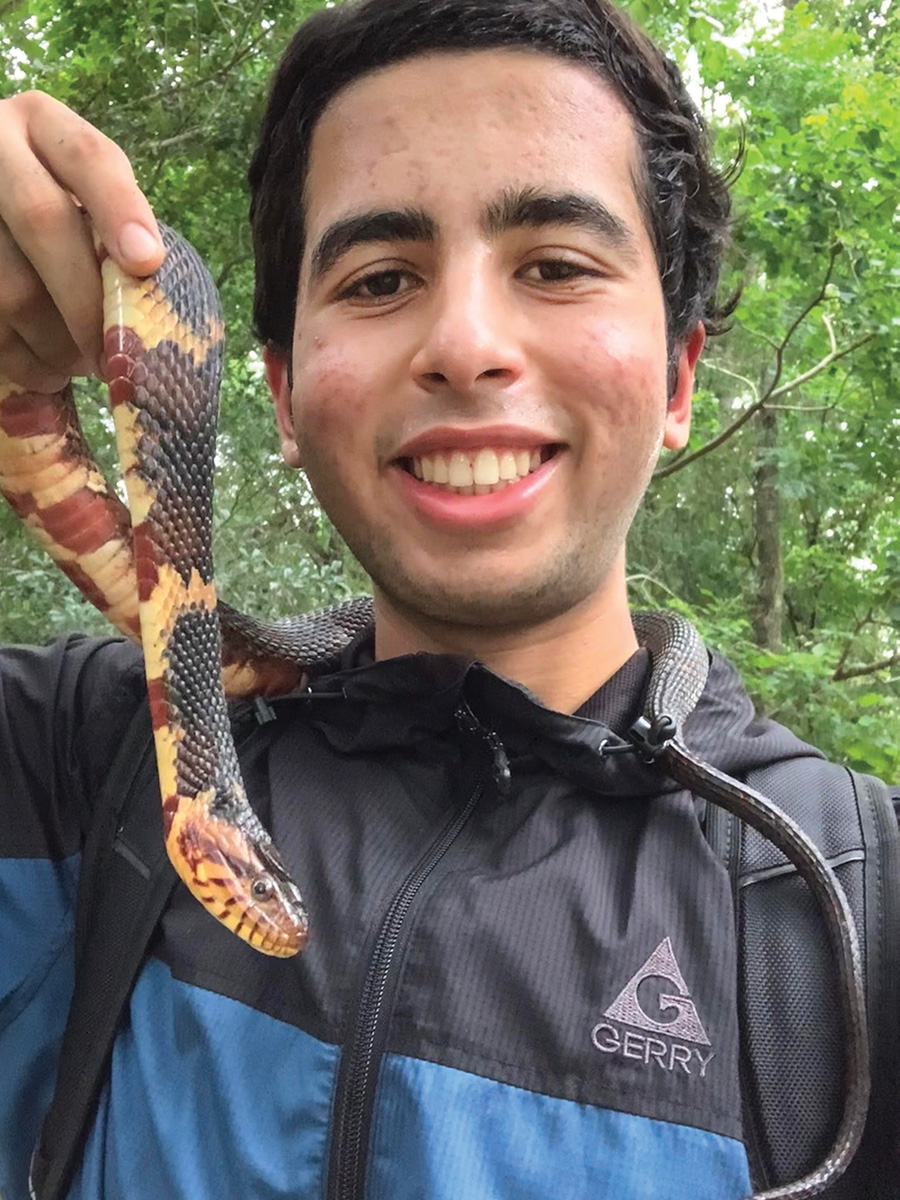
"I feel like people assume that someone who's into computer science and physics exclusively does things related to computer science and physics. But I like to do other things, too."
Naman Mehndiratta is the definition of a science prodigy. The Texas Academy of Mathematics and Science senior can rattle off details of research so complex, it almost sounds like he's speaking another language. He was captain of a TAMS team that placed among the top 23 internationally in this year's Beamline for Schools competition for its design of a Graphene Schottky Diode Particle Detector. Ultimately, he says, he hopes to attend MIT, Princeton or Stanford and study plasma or high energy physics.
But right now, he just wants to talk about snakes.
"My main hobby is actually field herpetology," the Katy native says. "I go out and search for reptiles and amphibians, catch and ID them, and then release them."
After recently discovering that only six of the 23 snake species in his area are venomous, he began biking around his community in search of trails the nonvenomous variety might call home. His favorite discovery so far?
"Probably the diamondback watersnake I found a few weeks ago," says Mehndiratta, pictured above with a broad-banded watersnake. "It took me two weeks of searching at night to find it."
Of course, patience, focus and enthusiasm are nothing new for Mehndiratta. They're qualities that have helped him excel in the rigorous world of TAMS, where he's embarked on computational physics research under the guidance of Carlos Ordonez, professor in UNT's Department of Physics. Under Ordonez's mentorship, Mehndiratta is programming simulations to optimize a potential antihydrogen gravity experiment using Wolfram Mathematica in an attempt to minimize the number of particles required to determine if antimatter is gravitationally attracted or repulsed by other matter.
And just like in his outdoor adventures, he relishes the opportunity to explore.
"In traditional high school courses, you come to class, answer questions that have already been answered, and that's that," he says. "But working in a lab is a much more dynamic experience. I really appreciate having a mentor who is actively helping me understand the research and get better at it."
And he's continuing to expand his horizons beyond academics, serving as the co-head of the 2020-21 TAMS Habitat for Humanity Committee. Throughout last fall and early spring, he volunteered for Habitat and helped build homes for families in Denton.
"Habitat for Humanity is a direct, tangible way to impact a community," Mehndiratta says. "I can add foundation or do some landscaping and then see the results of those efforts when the house is complete and becomes a home for a family."